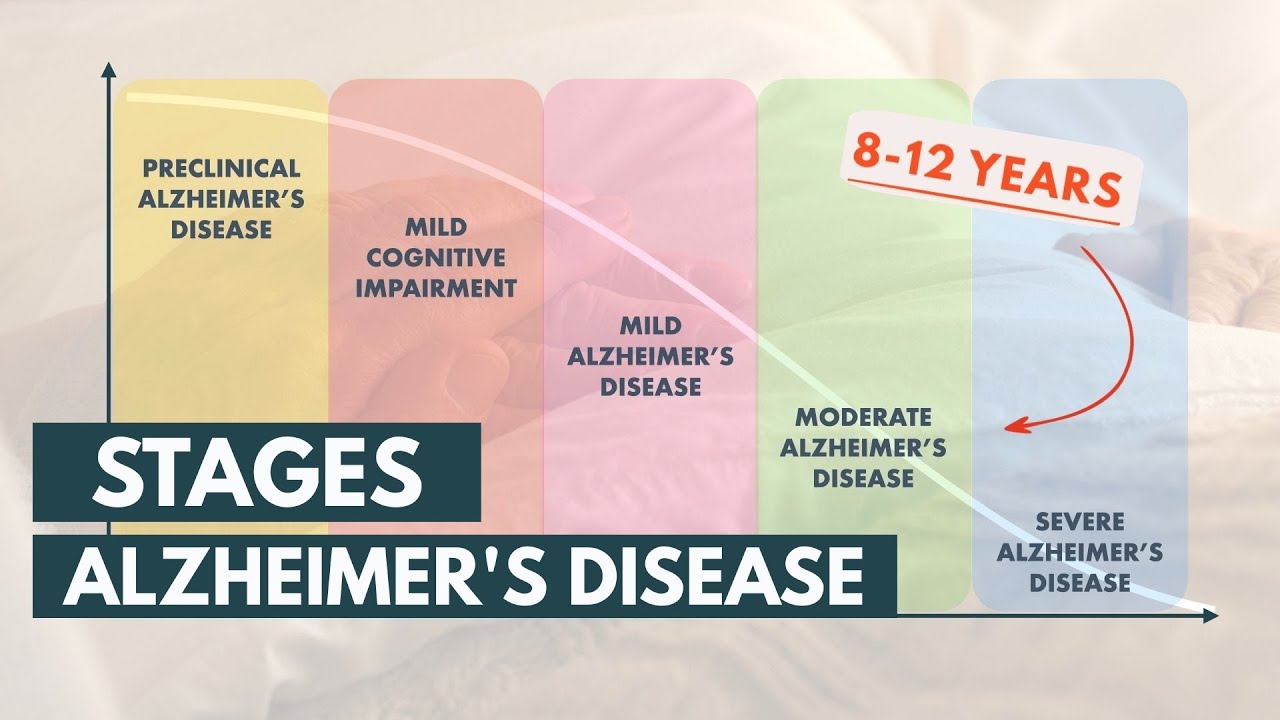Early Detection and Management of Mild Cognitive Impairment
Summary
TLDRThis lecture addresses the detection and management of mild cognitive impairment (MCI), focusing on the use of EGb 761 as a treatment. It outlines the criteria for MCI diagnosis, emphasizing the importance of early detection to delay dementia progression. The speaker discusses the prevalence of MCI in various populations, risk factors, and the benefits of EGb 761 in improving cognitive function. Additionally, the talk highlights non-pharmacological interventions like dance for cognitive improvement and the significance of a healthy lifestyle in managing MCI.
Takeaways
- 🧠 The risk of developing dementia increases with age, but there's a stage known as 'normal aging' where cognitive functions remain intact.
- 🔍 'Pathological aging' or dementia is characterized by a decline in independence in activities of daily living.
- 🏥 'Mild Cognitive Impairment' (MCI) is a pre-dementia stage identified by a noticeable decline in cognition, particularly in one cognitive domain, without significant impairment in daily functioning.
- 📊 The criteria for MCI from the National Institute on Aging and the Alzheimer's Association include cognitive decline, impairment in one cognitive domain, preserved independence, and not being demented.
- 🌐 International studies, such as those in Japan and the Philippines, show varying prevalence rates of MCI and dementia, highlighting the need for early diagnosis and intervention.
- 💊 EGb 761, a pharmaceutical agent, is recommended for the symptomatic treatment of MCI, with evidence supporting its efficacy in improving cognitive function.
- 🧪 The mechanism of action of EGb 761 includes increased neurogenesis, mitochondrial protection, improved neurotransmission, and modulation of Tau protein, which is associated with dementia.
- 📈 Systematic reviews and studies demonstrate significant cognitive improvements in MCI patients treated with EGb 761, particularly in memory, attention, and executive functions.
- 🏋️♀️ Non-pharmacological interventions, such as cognitive training and physical exercise, can also improve or maintain cognitive function and delay the progression of dementia.
- ⏰ Early diagnosis of MCI is crucial as it provides a window of opportunity for intervention and management, potentially delaying the onset of dementia.
Q & A
What is the primary risk factor for developing dementia mentioned in the script?
-The primary risk factor for developing dementia mentioned in the script is age, which is a significant contributor to the development of the condition.
What is the term used to describe the stage where cognitive decline is noticed but independence in activities is still maintained?
-The term used to describe this stage is 'Mild Cognitive Impairment' (MCI), where there is cognitive decline but the individual can still maintain their independence in daily activities.
What are the four criteria developed by the National Institute of Aging and the Alzheimer Association for MCI?
-The four criteria are: 1) No concern regarding a change in cognitions, 2) Impairment in one of the cognitive domains, 3) Preservation of the independent and functional abilities, and 4) The individual is not demented.
How does MCI relate to the DSM5 criteria for mild neurocognitive disorder?
-MCI in the script is equivalent to what is termed as mild neurocognitive disorder in the DSM5 criteria, indicating that both terms refer to the same condition.
What is the significance of early diagnosis and intervention in MCI?
-Early diagnosis and intervention in MCI are significant because it provides a window of opportunity to potentially reverse or delay the progression to full-blown dementia, as indicated by the 7.8-year period before MCI typically progresses to Alzheimer's disease.
What are the common screening tools used for the diagnosis of MCI mentioned in the script?
-The common screening tools mentioned are the Mini Mental State Examination (MMSE), the Montreal Cognitive Assessment (MoCA), and the Alzheimer's Disease Assessment Scale-Cognitive Subscale (ADAS-cog).
What is the only pharmacological agent recommended for the symptomatic treatment of MCI according to the script?
-The only pharmacological agent recommended for the symptomatic treatment of MCI is EGb 761, as mentioned in the script.
What are the three main neurobiological mechanisms of action of EGb 761 as described in the script?
-The three main neurobiological mechanisms of action of EGb 761 are: 1) Increase in neurogenesis and cytogenesis, 2) Mitochondrial DNA oxidation prevention and stabilization of mitochondrial membrane, and 3) Improvement of neurotransmission with anti-apoptotic and anti-inflammatory effects.
How does EGb 761 affect bleeding parameters according to the studies mentioned in the script?
-According to the studies, EGb 761 does not show significant changes in coagulation parameters, bleeding, or platelet aggregation, even at doubled doses or when combined with antiplatelet agents like aspirin.
What are some of the non-pharmacological interventions that can help improve or delay the progression of dementia as suggested in the script?
-Non-pharmacological interventions suggested in the script include diet, exercise, cognitive training, and vascular risk management, as well as a multi-component intervention like dance, which incorporates cognitive stimulation, social stimulation, physical exercise, and integration of sensory motor skills.
What is the importance of maintaining a healthy lifestyle in relation to MCI and dementia prevention?
-Maintaining a healthy lifestyle is important as it targets diet, physical exercise, and mental stimulation, which can help in the prevention of MCI progression to dementia and improve overall cognitive function.
Outlines

This section is available to paid users only. Please upgrade to access this part.
Upgrade NowMindmap

This section is available to paid users only. Please upgrade to access this part.
Upgrade NowKeywords

This section is available to paid users only. Please upgrade to access this part.
Upgrade NowHighlights

This section is available to paid users only. Please upgrade to access this part.
Upgrade NowTranscripts

This section is available to paid users only. Please upgrade to access this part.
Upgrade NowBrowse More Related Video
5.0 / 5 (0 votes)





